
THE HUNGER ANGEL: A NOVEL
Herta Müller
Translated from the German by Phillip Boehm
It was an icy morning in January 1945 when the patrol came for seventeen-year-old Leo Auberg to deport him to a camp in the Soviet Union. Leo would spend the next five years in a coke processing plant, shoveling coal, lugging bricks, mixing mortar, and battling the relentless calculus of hunger that governed the labor colony: one shovel load of coal is worth one gram of bread.
In her new novel, Nobel laureate Herta Müller calls upon her unique combination of poetic intensity and dispassionate precision to conjure the distorted world of the labor camp in all its physical and moral absurdity. She has given Leo the language to express the inexpressible, as hunger sharpens his senses into an acuity that is both hallucinatory and profound. In scene after disorienting scene, the most ordinary objects accrue tender poignancy as they acquire new purpose—a gramophone box serves as a suitcase, a handkerchief becomes a talisman, an enormous piece of casing pipe functions as a lovers' trysting place. The heart is reduced to a pump, the breath mechanized to the rhythm of a swinging shovel, and coal, sand, and snow have a will of their own. Hunger becomes an insatiable angel who haunts the camp, but also a bare-knuckled sparring partner, delivering blows that keep Leo feeling the rawest connection to life.
Metropolitan Books, hardcover, 9780805093018
|


MESMERIZED
Alissa Walser
Translated from the German by Jamie Bulloch
Mozart's Vienna. A crucible for scientific experimentation and courtly intrigue, as Europe's finest minds vie for imperial favour. In a colourful, chaotic private hospital that echoes with the shrieks of hysterical patients, Franz Anton Mesmer is developing a series of controversial cure-alls for body and mind. When he is asked to help restore the sight of a blind musical prodigy favoured by the Empress herself, he senses that fame, and even immortality, is within his grasp. Mesmer knows that he will have to gain her trust if he is to open her eyes. But at what cost to her fragile talent? And will their intimacy result in scandal?
Alissa Walser is a writer, translator and painter living in Frankfurt am Main. She is the author of three volumes of short stories, and for her first novel Mesmerized she was awarded the Spycher Literaturpreis in 2010.
MacLehose Press, hardcover, 9780857051004 (June)
|

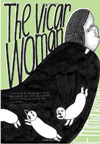
THE VICAR WOMAN
Emma Rendel
A lonely vicar investigates the dark secrets of one remote island community in this strange and haunting new graphic novel.
A female vicar arrives on a small island to take up a new post. It is a strange opportunity: the parish is brand new, and set up by the community itself, who have built themselves a church modelled on St Peter's Basilica. The vicar is surprised and delighted by the enthusiastic welcome she receives. The church is full day after day, and the parishioners compete for her attention. Not many are interested in discussing spiritual matters however, and as she gets to know them, the vicar becomes aware of a split in the community; a terrible secret that is not spoken of, but which plagues the island, pitting neighbour against neighbour.She hears whispers of a missing young girl whose parents died in a mysterious blaze, of secret abortions, and of a fearsome ghost. What the villagers most want is absolution, but can the Vicar Woman provide it for them?
Emma Rendel was born in 1976 in Uppsala, Sweden. She studied illustration and graphic design at Central St Martin's and Communication Arts and Design at the Royal College of Art. She contributes to Galago, Hjelp and Le Gun, and her illustrations have been published in Icon magazine and Time Out. Her first book, Pentti and Deathgirl, was published by Jonathan Cape in 2009.
Jonathan Cape, paperback, 9780224091398
|


FAREWELL: A MANSION IN OCCUPIED ISTANBUL
Ayșe Kulin
Translated from the Turkish by Kenneth J Dakan
A sweeping story of the final collapse of the Ottoman empire over the course of the First World War, Farewell is a novel of great warmth, suffused with tragedy. Focusing on the experiences of one particular family living in one particular house during these historic events, Ayşe Kulin mixes fact and fiction, soap opera and Tolstoy, to bring to light the effects of such political upheaval on a nominally comfortable and affluent household: the monied and intellectual class who find that their stake in Turkish life and culture is far more precarious than they could have guessed.
Ayse Kulin was born in Istanbul in 1941. a fiction writer and essayist, Kulin has been awarded the haldun taner short story award, the sait Faik story Prize, and has twice been named writer of the year by the Istanbul Communication Faculty. in 2011, Farewell: A Mansion in Occupied Istanbul was longlisted for the international IMPAC Dublin Literary Award.
Dalkey Archive Press, paperback, 9781564787583 (June)
|


MALVINA, OR THE HEART'S INTUITION
Maria Wirtemberska
Translated from the Polish by Ursula Phillips
First published in Warsaw in 1816, Malvina, or the Heart's Intuition has been largely—and unjustly—ignored by the Polish literary canon. Ingeniously structured and vividly related by a Tristram Shandy-esque narrator, Maria Wirtemberska's psychologically complex work is often considered Poland's first modern novel. This splendid translation by Ursula Phillips should restore Wirtemberska to her rightful place in the literary pantheon while providing fertile new ground for the study of the international development of the novel.
The romantic story of the young widow Malvina and her mysterious lover Ludomir, Malvina combines several literary styles and influences—from the epistolary to the Gothic. Nobel laureate Czeslaw Milosz argues that Malvina is quintessentially a sentimental novel—a model of the genre whose chief aspiration is to promote a change in sensibility and inspire new forces of feeling and imagination. For this reason Wirtemberska may be compared to her English contemporary, Jane Austen.
Maria Wirtemberska (1768‒1854) was a Polish noblewoman and philanthropist in addition to being a writer.
Northern Illinois Univ. Press (US), paperback, 9780875804507 (May)
|


WITH THE ANIMALS
Noëlle Revaz
Translated from the French by W. Donald Wilson
With the Animals, Revaz's shocking debut, is a novel of mud and blood whose linguistic audaciousness is matched only by its brutality, misanthropy, and gallows humor. Narrated by the singular Paul—a violent, narrowminded farmer whose unceasing labor leaves him with more love for his livestock than his family—With the Animals is at once a fantastically exaggerated and entirely honest portrait of masculinity gone mad. With his mute and detested wife and children huddled at his side, Paul is only roused from his regimen of hard labor and casual cruelty when a farmhand, Georges, comes to work on his property for the summer. His sovereignty seemingly threatened, an element of unwanted humanity now injected into his universe, Paul's little kingdom seems ripe at last for a revolution.
Noëlle Revaz was born in 1968 in the canton of Valais, Switzerland. She is the author of numerous short stories and a novel, Efina. Besides her work as a writer, she teaches creative writing at the Swiss Literature Institute at Biel/ Bienne, where she lives.
Dalkey Archive Press, paperback, 9781564787545 (May)
|

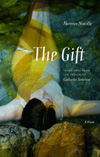
THE GIFT
Florence Noiville
Translated from the French by Catherine Temerson
This moving fictional memoir begins as a woman heads home after a meeting regarding her inheritance. Rebeling against the legalese uttered by the attorney, her mind drifts back to her childhood and she sees her life with sudden clarity. On the train, she jots down a few notes, which prompt the poetic outpouring of memory and emotion that make up this delicate novel.
The narrator's mother looms large in her psyche. Labeled "eccentric" or "Italian", her mother in fact suffered from what was later found to be manic depression. Without understanding the disease, the family treated the unpredictable ups and downs of her condition as they struck. During periods of paralyzing depression she was hospitalized, and the family felt abandoned. During periods of manic productivity and overdrive, she was a dedicated pharmacist, an exemplary homemaker, and an unusually knowledgeable gardener. This sparse novel draws the portrait of a grand and unforgettable lady, loving and unable to love at once. Her bequest is as much a material one as it is an emotional one, and, the author surmises as she glances at her own daughters, a genetic one.
Florence Noiville is the author of Isaac B. Singer: A Life, which won the Prix du Recit Biographique in 2003. She is a literary critic for Le Monde and lives in Paris.
Northwestern Univ Press, paperback, 9780810126763 (June)
|
|
|
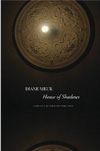
HOUSE OF SHADOWS
Diane Meur
Translated from the French by Teresa Lavender Fagan
After the failed revolutions of 1848, Galicia has been brought under the rule of the Habsburg Empire, and the Zemka family find themselves embroiled in the struggle for Polish independence. This is a history of Eastern Europe told in miniature through the tumultuous saga of one family as they try to reclaim their estate in the decades of violence and political confusion that follow.
In this extraordinary novel, Diane Meur calls upon an unusual narrator: the ancestral house itself—the House of Shadows of the title—which, from behind its unmoving façade, watches the comings and goings of generations of inhabitants. The house is everywhere in the story, hearing and observing everything; it encompasses all the shadows of a past that it knows better than do its occupants. But it envies the mobility of those who reside there, and though the years pass, nothing changes for the house. Like the house, the Zemka women—mothers and daughters, aunts and nieces—are condemned to a certain immobility. At home, they wait for love, passion, and stories of the calamitous events on the horizon. On the threshold of the twentieth century, only one young woman manages to escape from beneath the weight of her family's house and the historical conflagrations to come.
Diane Meur, a Belgian-born writer and translator, has lived in Paris for the past twenty years. She has written several novels and short stories.
Seagull Books, hardcover, 9780857420282 (June)
|

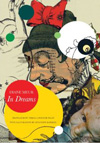
IN DREAMS
Diane Meur
Translated from the French by Teresa Lavender Fagan
In Paris, Montreal, Seville, Berlin and towns large and small, Diane Meur has dreamt—and she has remembered her dreams. In this small volume the author shares her dreams of the years 2008‒10, a time of global upheaval that happened to coincide with upheavals in her own life. As she writes in the preface, "They are not my life, they are not my writing, they are just the dreams I had, remembered, and noted down: all of them, and every part of them, without censure or omission."
Some dreams are humorous: peeling a scorpion like a shrimp and finding it isn't half bad; some are poignant: a tiny doll-like baby encountered in a train; and, as in many dreams, there is much anxiety: old boyfriends encountered again; children in distress; unusual, threatening spaces and people. Though dreamt by the author, Meur's dreams share a common human intimacy—in them we recognize our own innermost thoughts, concerns, desires, and fears. Accompanied by the otherworldly illustrations of collage artist Sunandini Banerjee, Meur's dreams come alive, inspiring our own reveries and becoming part of our nocturnal imaginings.
Seagull Books, hardcover, 9780857420299 (June)
|

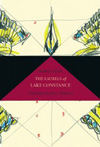
THE LAURELS OF LAKE CONSTANCE
Marie Chaix
Translated from the French by Harry Mathews
It is 1936, and Albert B. is one of the first French citizens to join the Fascist party. During the war, he becomes a collaborator. It's only a matter of time before he dons a German uniform himself.
Taking place in the limbo between the moment of Albert's initial "fall" and his inevitable capture, following the Allied invasion of Mainau, The Laurels of Lake Constance is the story not only of Albert himself, but of his daughter, who must endure the paradox of loving a man whose beliefs and allegiances are nothing short of catastrophic. Beautifully translated by novelist Harry Mathews, The Laurels of Lake Constance is a profoundly moving story about both war and childhood, and their intersection in one household, conjured in all its details, be they beautiful or shameful: a resigned mother playing music, a father absent, an era frozen in a tragic fresco where novelistic detail mixes with history.
Marie Chaix was born in Lyons and raised in Paris, and is the author of nine books. The Summer of the Elder Tree, a memoir and meditation on the theme of separation, and her first book in more than a decade, was published in Paris in 2005, and will appear from Dalkey Archive Press in 2013.
Dalkey Archive Press, paperback, 9781564787231 (June)
|


EVERY DAY, EVERY HOUR
Nataša Dragnic
Translated from the German by Liesl Schliwenger
It is the mid-1960s in a small seaside town in Croatia. Two children, Luka and Dora, meet on their first day of kindergarten. Luka faints the first time he sees Dora and she wakes him with a kiss. The two become inseparable. Over the next few years, they wander the shores of their town, lying on their special rock by the sea as Luka paints—until Dora's parents move to Paris. Bereft, Luka becomes a solitary young man, prey to the needs of his family, but a promising painter. In Paris, Dora blossoms and becomes a successful actress.
When Luka comes to Paris for a show of his paintings, a chance encounter brings them together. Now adults, they fall back in love, and their feelings are given resonance by a shared adoration of Pablo Neruda. Timing and fate, however, seem determined to keep them apart. Like The Solitude of Prime Numbers and One Day, Nataša Dragnić's Every Day, Every Hour is a haunting tale of star-crossed love that will utterly entrance readers with the rhythmic beauty of its language and ineffable air of expectation and heartache.
Chatto & Windus (UK), hardcover, 9780701186944 (June); Viking (US), hardcover, 9780670023509 (May)
|

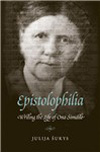
EPISTOLOPHILIA: WRITING THE LIFE OF UNA SIMAITE
Julija Šukys
The librarian walks the streets of her beloved Paris. An old lady with a limp and an accent, she is invisible to most. Certainly no one recognizes her as the warrior and revolutionary she was, when again and again she slipped into the Jewish ghetto of German-occupied Vilnius to carry food, clothes, medicine, money, and counterfeit documents to its prisoners. Often she left with letters to deliver, manuscripts to hide, and even sedated children swathed in sacks. In 1944 she was captured by the Gestapo, tortured for twelve days, and deported to Dachau.
Through Epistolophilia, Julija Šukys follows the letters and journals—the "life-writing"—of this woman, Ona Šimaitė (1894‒1970). A treasurer of words, Šimaitė carefully collected, preserved, and archived the written record of her life, including thousands of letters, scores of diaries, articles, and press clippings. Journeying through these words, Šukys negotiates with the ghost of Šimaitė, beckoning back to life this quiet and worldly heroine—a giant of Holocaust history (one of Yad Vashem's honored "Righteous Among the Nations") and yet so little known. The result is at once a mediated self-portrait and a measured perspective on a remarkable life. It reveals the meaning of life-writing, how women write their lives publicly and privately, and how their words attach them—and us—to life.
Julija Šukys is the author of Silence Is Death: The Life and Work of Tahar Djaout (Nebraska, 2007). She lives in Montreal, Quebec.
University of Nebraska Press, hardcover, 9780803236325
|

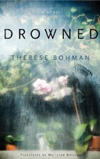
DROWNED
Therese Bohman
Translated from the Swedish by Marlaine Delargy
Drowned, set in the idyllic countryside during a short-lived Swedish summer, gets under one's skin from the first page, creating an atmosphere of foreboding in which even the perfume of freshly picked vegetables roasting in the kitchen becomes ominous. On the surface, the story couldn't be simpler. A single young woman visits her older sister, who is married to a writer as charismatic as he is violent. As the young woman falls under her brother-in-law's spell, the plot unfolds in a series of precisely rendered turns. Meanwhile the reader, anticipating the worst, hopes against hope that disaster can be averted.
More than a mere thriller, this debut novel delves deep into the feminine soul and at the same time exposes the continuing oppression of women in Sweden's supposedly enlightened society. Mixing hothouse sensuality with ice-cold fear on every page, Drowned heralds the emergence of a major new talent on the international scene.
Other Press, paperback, 9781590515242 (May)
|


ART IN NATURE: AND OTHER STORIES
Tove Jansson
Translated from the Swedish by Thomas Teal
An elderly caretaker at a large outdoor exhibition, called Art in Nature, finds that a couple have lingered on to bicker about the value of a picture; he has a surprising suggestion that will resolve both their row and his own ambivalence about the art market. A draughtsman's obsession with drawing locomotives provides a dark twist to a love story. A cartoonist takes over the work of a colleague who has suffered a nervous breakdown only to discover that his own sanity is in danger. In these witty, sharp, often disquieting stories, Tove Jansson reveals the fault-lines in our relationship with art, both as artists and as consumers. Obsession, ambition, and the discouragement of critics are all brought into focus in these wise and cautionary tales.
The writer and artist Tove Jansson (1914-2001) is best known as the creator of the Moomin stories, which have been published in thirty-five languages. However, from 1968, she turned her attention to writing for adults. Her bestseller, The Summer Book, is a modern Scandinavian classic. Art in Nature was published six years later.
Sort of Books, hardcover, 9780956308696 (June)
|
|
|

